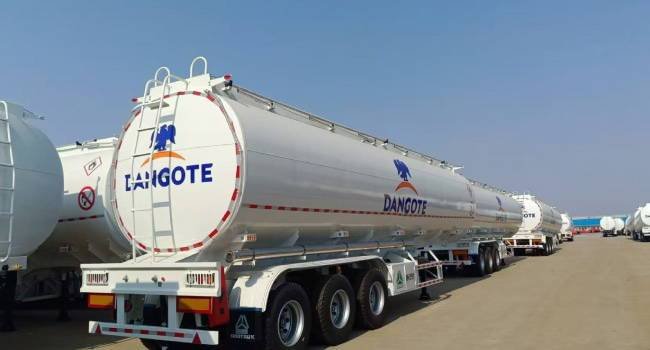The Dangote Petroleum Refinery has dismissed reports alleging that it imported finished petrol with high sulphur content into Nigeria, describing the claims as false, malicious, and misleading.
In a statement issued on Friday, the company clarified that the cargo in question was not finished petrol but an intermediate feedstock, a standard raw material used in refining processes globally. The refinery explained that it processes a mix of crude oils and feedstocks to optimize production efficiency and maintain the highest quality standards.
“As a world-scale complex refinery, Dangote processes a range of crude oils and intermediate feedstocks, which is standard practice worldwide. The product referenced in recent reports is an intermediate feedstock, not finished petrol. It will undergo full refining in our units to meet both Nigerian and international quality standards,” the statement read.
Read Also:
Dangote Refinery strikes 60 Million-Litre weekly fuel supply deal with IPMAN
Dangote Refinery sells PMS at N960/liter to ships, N990 for trucks, Chiejina clarifies
Dangote Refinery breaks over five decades of energy insufficiency, insecurity jinx, says Chiejina
Dangote Petroleum Refinery emphasized that it operates strictly within a Free Trade Zone and produces only high-quality fuels that comply with all regulatory specifications. The company noted that its exports of petroleum products to the United States and Europe, two of the world’s most tightly regulated markets, prove its adherence to global environmental and safety benchmarks.
“All our imports are accompanied by verifiable quality certificates shared transparently with relevant regulators. We are also open to making these documents public to ensure full transparency and accountability,” the statement added.
Reiterating its mission, the refinery reaffirmed its commitment to advancing Nigeria’s energy independence, maintaining global best practices, and supplying cleaner fuels to both domestic and international markets.
The clarification comes amid increasing public interest in Nigeria’s fuel supply chain and the operations of Africa’s largest refinery, which has been at the forefront of efforts to reduce the country’s dependence on imported petroleum products.






